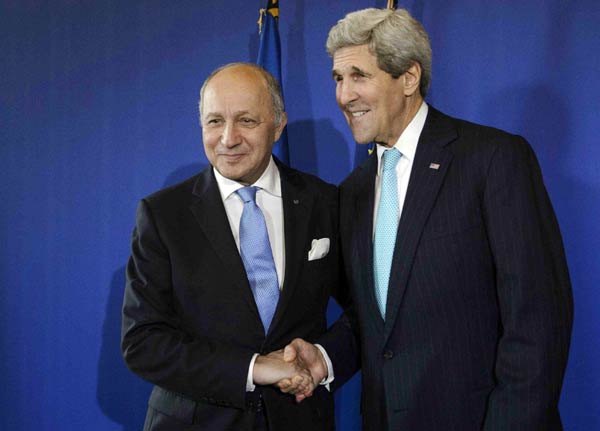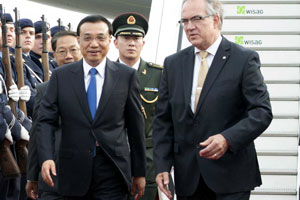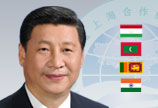US, France cite concerns about Iran nuclear talks
(Agencies) Updated: 2014-11-06 10:37
 |
|
US Secretary of State John Kerry (R) and French Foreign Affairs minister Laurent Fabius shake hands after a news conference following talks at the Quai d'Orsay in Paris November 5, 2014. [Photo/Agencies] |
Congress has very limited power to influence a potential deal. It could refuse to lift sanctions imposed on Iran, but it can't stop the president from suspending or relieving some of the sanctions by executive order.
And, he noted: "As we have learned in the last few years, the minority has enormous power to stop things from happening." Obama's party, the Democrats, will be in the minority in Congress next year.
Kerry also insisted that the US is not prepared to extend the looming deadline, just three weeks away with scant sign of a final agreement. But he left open the possibility if, at the end, the two sides find themselves "inches" away from a resolution that has long bedeviled the international community.
On-and-off negotiations between Iran and world powers have languished for years without resolution, and the last time the two sides came close to a deal was in 2008.
But world powers saw a new opening with the 2013 election of Iranian President Hassan Rouhani, who campaigned to end bruising Western sanctions to punish Tehran for its nuclear production.
Israel has also objected to the negotiations, which have become a sore point between Washington and Tel Aviv.
While in Paris, Kerry also met with former British Prime Minister Tony Blair and Jordanian Foreign Minister Nasser Judeh _ both of whom have been focused on the stagnant effort to broker a peace agreement between Israel and Palestinian authorities.
- Iran rejects UN human rights report as 'unfair'
- Boeing reports first aircraft-related goods sales to Iran since 1979
- Iran offering new compromise in nuclear talks
- Iran president pledges support for Iraq
- US says some progress in Iran nuclear talks
- 19th Busan int'l film festival concludes with S Korea, Iran winning top prize
- Iran refuses entry to UN nuclear watchdog envoy
- Iran won't replace Russia as top gas supplier - Tass quotes Rouhani










